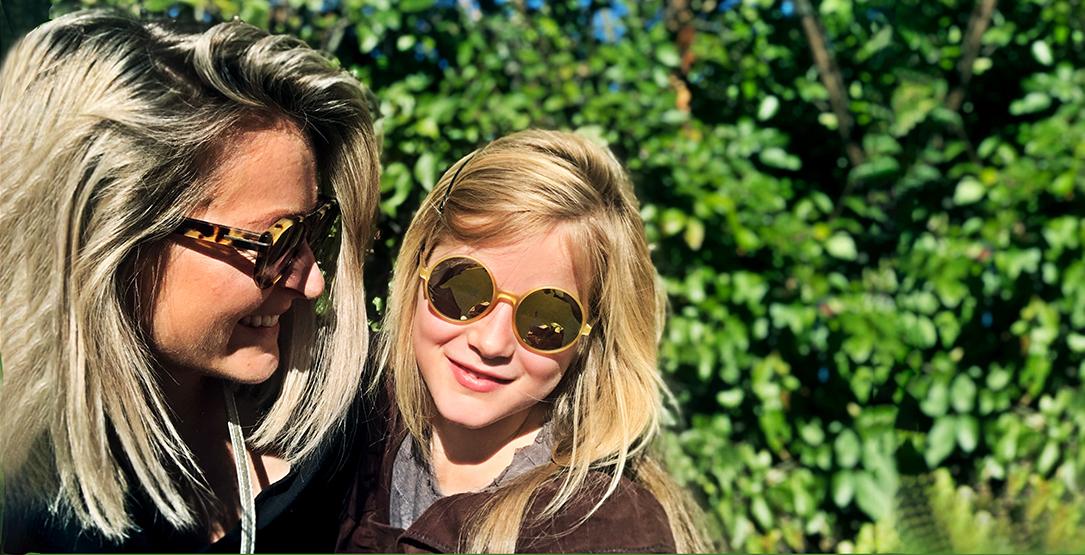Cisco: A Mother Speaks Up for Mother Earth
By Pauline Vogl

Mother Earth and moms have a lot in common (And by moms, I’m including mothers, grandmothers, aunts, godmothers and more). Moms not only create life but their focus on nurturing their children year after year and ensuring their safety and ability to flourish is unparalleled. Mother Earth does the same. For millions of years, Mother Earth has been protecting us, providing a safe and abundant environment to live and raise our families.
According to the United Nations (UN) report Progress on the Sustainable Development Goals: The gender snapshot 2022, “Women play transformative roles in climate change adaptation and mitigation despite many obstacles” with many taking on grassroot efforts to make a change in their own communities. Women are also taking leadership positions in the field of sustainability. At large companies, 58 percent of sustainability executives are female. And according to the 2022 GreenBiz State of the Profession report, the number of women in sustainability leadership roles has expanded. That’s good news for Mother Earth, since we know how innovative, persistent, and driven women can be when protecting their families.
From my own personal experience, I was raised by a mother who was an environmentalist before most people knew what that was. She sold “biodegradable” cleaning products to the neighborhood moms, wrapped our sandwiches in wax paper and insisted we bring that paper home so she could reuse it the next day. She sewed some of our clothes out of left-over fabric (“We can’t let this perfectly good fabric go to waste!”) and made us save our gum in water to rechew later (I know, I wish I were kidding, too). We walked and rode our bikes because gas emitted “that black stuff into the air” and donated all our used toys, books, clothing, etc. to the “Bargain Box” secondhand store down the road. My mom instilled in my siblings and me that we have to live in harmony with the Earth or she will kick us off. I took her on a hike last weekend and at 85 years old she was still “schooling me” on the wildflowers growing on Mt. Tamalpais and why they’re important to the ecosystem.
As a mom myself, I wanted to sit down with another mom at Cisco and learn more about her thoughts on sustainability. Elisabeth Brandasu is a global account manager for Equinor and sustainability lead for the North Theater in Cisco’s Europe, Middle East and Africa (EMEA) region. She shares how being a mother has impacted her perspective on the environment and influenced her actions to create a more sustainable future.
How did you get into the field of sustainability?
Elisabeth: I was naïve until a few years ago. I was so busy with building my life, surviving those first few whirlwind years of being a young mom with a full-time job. At some point, I was offered the opportunity for a stretch assignment (which gives employees a chance to explore a different type of role by volunteering some of their time to another team) as inclusion and diversity lead for EMEA. That is where my calling for purpose-driven work started. I am privileged in many ways; I have a lot of energy and I want to use my voice for doing something purposeful. When sustainability came on my path it just really struck home. It’s not just the sense of necessity in accelerating the needed change, but the enormous opportunity the transition provides too. It excites me.
Did becoming a mother change your personal perspective about the work you’re doing?
Elisabeth: My worry for the kids really kicked in when they began school. As you release them into the wider world, you start envisioning their future and the planet we are leaving them. We don’t inherit the planet from our parents, we borrow it from our children. I lovingly pour all my time and effort into the kids being safe and happy, now and for all their days to come. So, how could I stand by and let this monumental systemic transition the world so desperately needs pass me by? How can I push this onto my children’s shoulders to resolve it?
You circle back to yourself, thinking, ‘what can I do?’ As a mom, you don’t just sit by, and watch tragedy impact your kids. You step up and do whatever you can.
What does working in sustainability mean to you?
Elisabeth: Working in sustainability means so much more than ‘just a job’. It is continuous learning, giving back, amplifying the reach of our experts by spreading their word, scaling the community of ambassadors, training people to incorporate sustainability as a first thought in doing business. You don’t necessarily need a formal education or background in sustainability to make a contribution. I believe I have found my own way of contributing and I know others can too. I am proud of the Green and Blue sustainability community at Cisco. It emerged from the internal Green and Blue Innovation Challenge in EMEA to stimulate as many ideas as possible, with green representing sustainability and blue representing the digital transformation. It is a force to be reckoned with and we have together accomplished so much. I want to be part of this movement of change for the better, because what we all wish for our children is the very best.
How did you start the conversation about sustainability with your kids?
Elisabeth: They’ve learned some very simple concepts about sustainability in school. They do not yet understand that if the world continues as it does, there will be some serious consequences.
When speaking about a sustainable future, it’s important to put a sense of hope into it, rather than risk paralyzing people with devastating outlooks. Hope activates! It’s not about being perfect, it’s about pledging yourself to do better all the time. I am also an optimistic realist. I choose to believe in our collective power to make amazing progress, steering us toward less devastating outcomes.
The way I speak to my kids about it is that the world has been using more than it can replenish. The system is broken, so we are trying to build a new system and that is really complicated because everything is intertwined. Do I think they get it yet? No, but that’s okay. They don’t need to have it all figured out. But they’re the type of kids that think about those things and are curious to learn more and it will eventually mature in their minds. For now, I just want them to be kids.
Do you have any advice for actions that parents can take to help create a more sustainable future?
Elisabeth: For me, there is a big focus on circularity. I try not to buy new things. So, everything I buy with the kids or for the kids I try to buy second hand. We’re also focused on reducing waste, especially around food. We don’t throw away food. When you have leftovers, you eat it again the next day. If they didn’t eat their lunch, that’s fine, but they need to have their lunch for dinner. My kids have very few toys and prefer to go outside to play.
Also, I have been focused on energy minimization in the house and using energy at the lowest possible price and load balancing throughout the day. I don’t cook while I have the washing machine on, and I don’t charge the car while the dishwasher is on.
Sustainability is a bit like exercise. Don’t overdo it from the get-go. Allow yourself to embrace it and make it a habit. You don’t need to save the world on day one. Educate yourself and understand the impact of your lifestyle. Decide what you are going to integrate into your normal routine and identify the things that you’re going to step away from. Whatever you decide to do, it is okay because you’ve been conscious about the decision. Every day, there are probably at least 200 moments where you can make the decision to do the more sustainable thing. Are any of the individual actions that I take enough on their own? Definitely not, but it is about doing what you can do and keep on pushing to do better. It’s a journey.
We also need to stop passing judgement on people that aren’t moving as fast when it comes to sustainability. It’s counterproductive. Rather, meet them where they are, and inspire them to keep moving forward.
Thirty years from now, I’m going to be retired. My kids will be the age I am now and will decide if they want to become parents. I don’t want them to have existential worries and I don’t want to look back on my own life thinking ‘I didn’t do enough for the planet when I had a chance.’ We can’t defer action any longer, it’s the responsibility of our generation, the ‘elders’, to do what we can.

